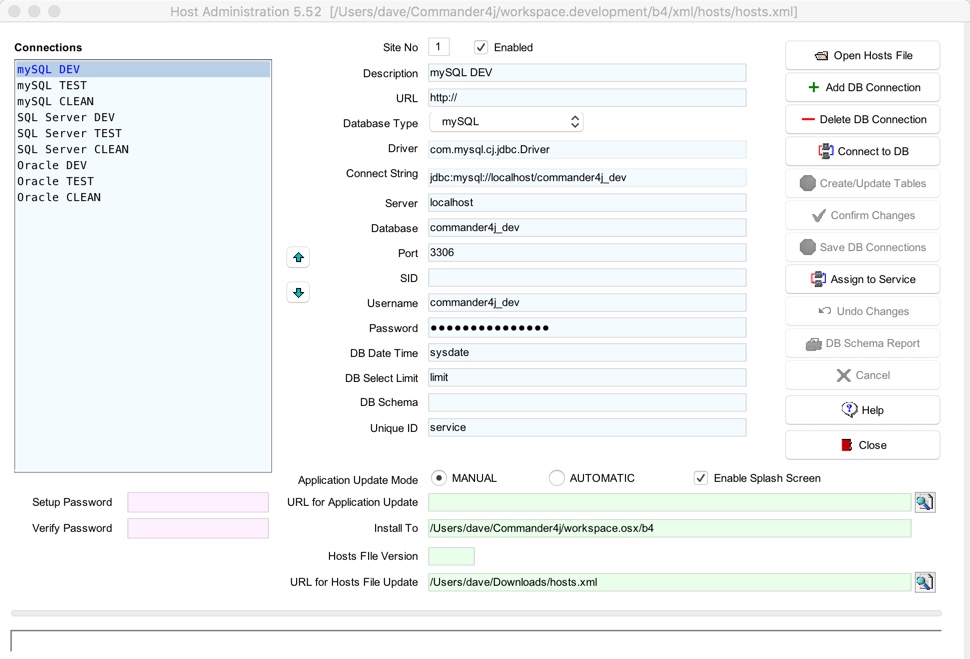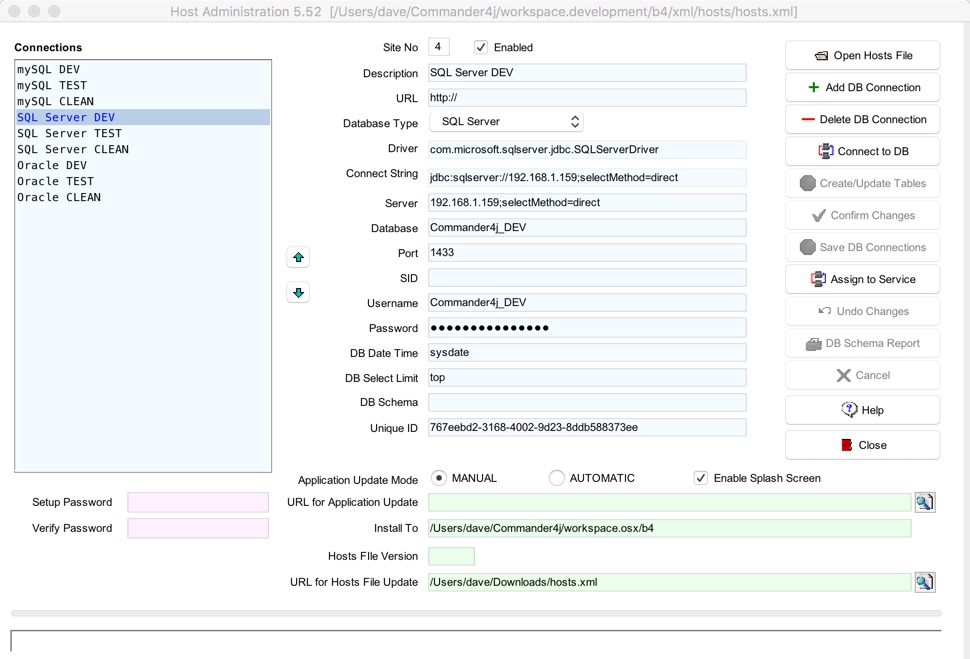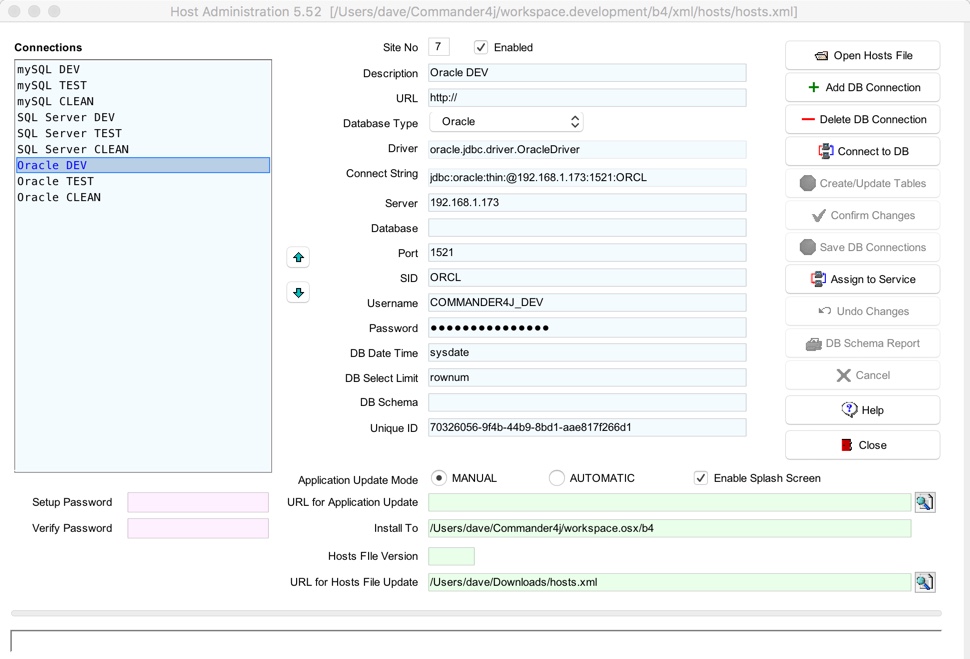Difference between revisions of "Setup4j"
| (One intermediate revision by the same user not shown) | |||
| Line 4: | Line 4: | ||
* Microsoft SQL Server | * Microsoft SQL Server | ||
* Oracle | * Oracle | ||
| + | <br> | ||
| + | [https://www.youtube.com/watch?v=BgF1-zs3pT4&t=3s Video Tutorial] | ||
| + | <br> | ||
<br> | <br> | ||
In addition to creating the tables needed for Commander4j the Setup4j also creates a file called hosts.xml which<br> | In addition to creating the tables needed for Commander4j the Setup4j also creates a file called hosts.xml which<br> | ||
| Line 28: | Line 31: | ||
Below are 3 sample host configurations. One for each database type which is supported. | Below are 3 sample host configurations. One for each database type which is supported. | ||
<br><br><br> | <br><br><br> | ||
| − | + | == mySQL == | |
| + | <br> | ||
[[File:Setup4j_mysql.jpg]] | [[File:Setup4j_mysql.jpg]] | ||
<br><br><br> | <br><br><br> | ||
== Microsoft SQL Server == | == Microsoft SQL Server == | ||
| − | <br | + | <br> |
[[File:Setup4j_mssql.jpg]] | [[File:Setup4j_mssql.jpg]] | ||
<br><br><br> | <br><br><br> | ||
| − | + | == Oracle == | |
| + | <br> | ||
[[File:Setup4j_oracle.jpg]] | [[File:Setup4j_oracle.jpg]] | ||
Latest revision as of 19:22, 14 July 2019
The Setup4j utility allows you to setup the database you want to use with Commander4j. The application supports 3 types of database
- mySQL
- Microsoft SQL Server
- Oracle
Video Tutorial
In addition to creating the tables needed for Commander4j the Setup4j also creates a file called hosts.xml which
is loaded at startup and displays a menu to allow you to select which database you want to connect to.
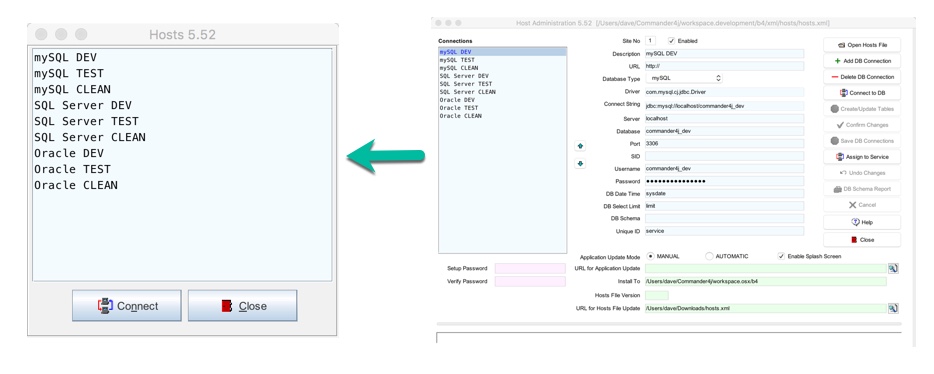
The Setup4j will be needed to create the initial database when installing for the first time. It will also be used when
upgrading to a new version of the application.
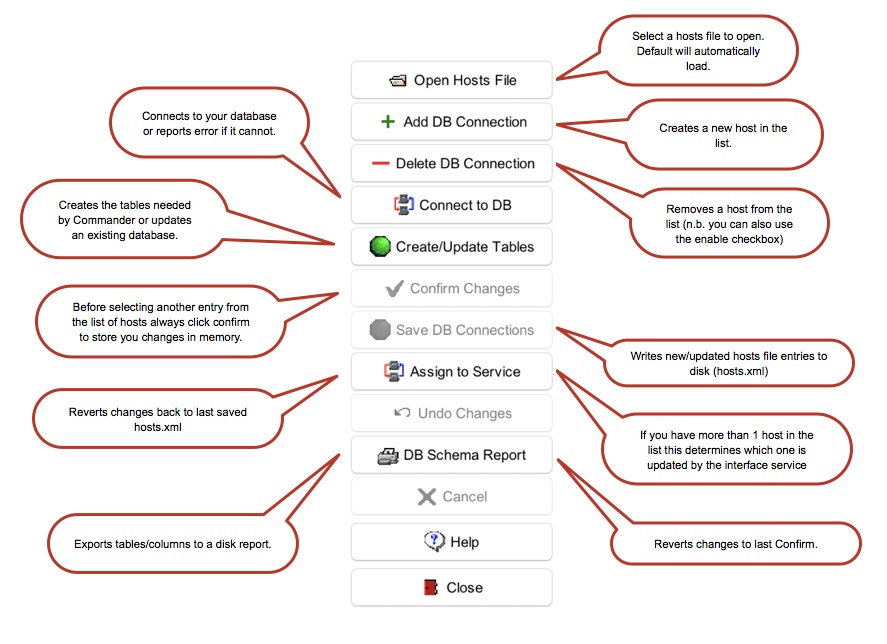
The example hosts file which is installed during installation is purely for illustration purposes. You should create your
own entries which point to your own database(s).
Sytax for URL for Application Update
file://servername/sharename/directory/updates.xml
Sytax for URL for Hosts File Update
//servername/sharename/directory/hosts.xml
Below are 3 sample host configurations. One for each database type which is supported.
